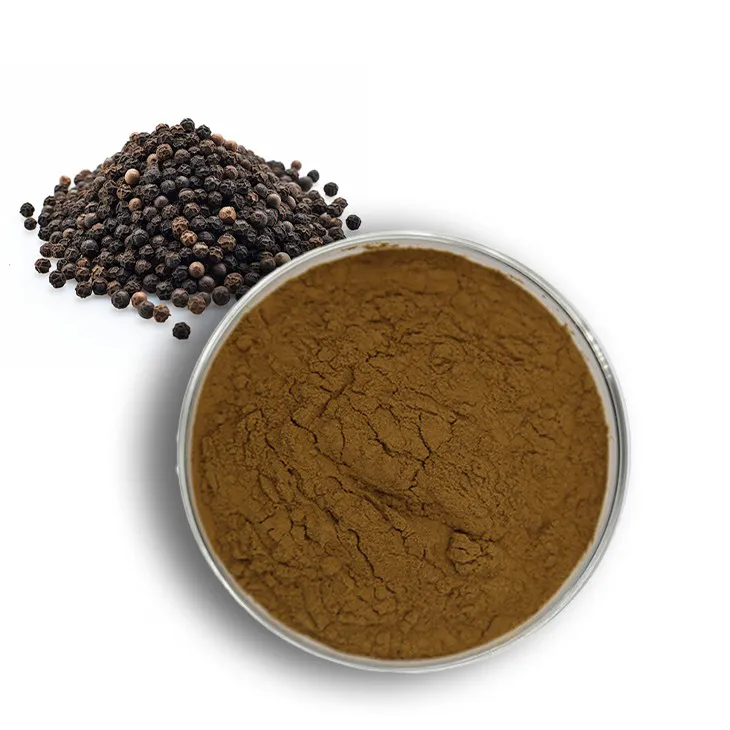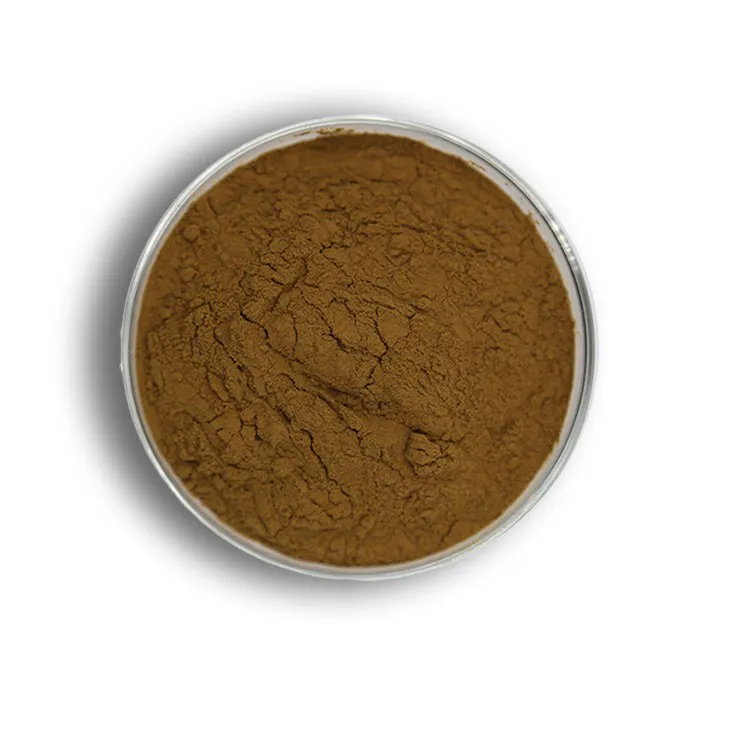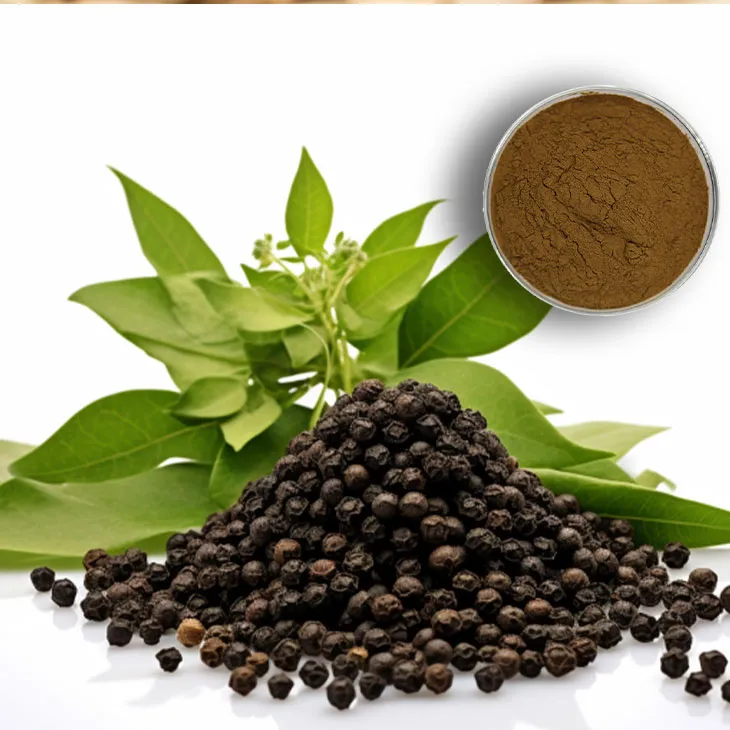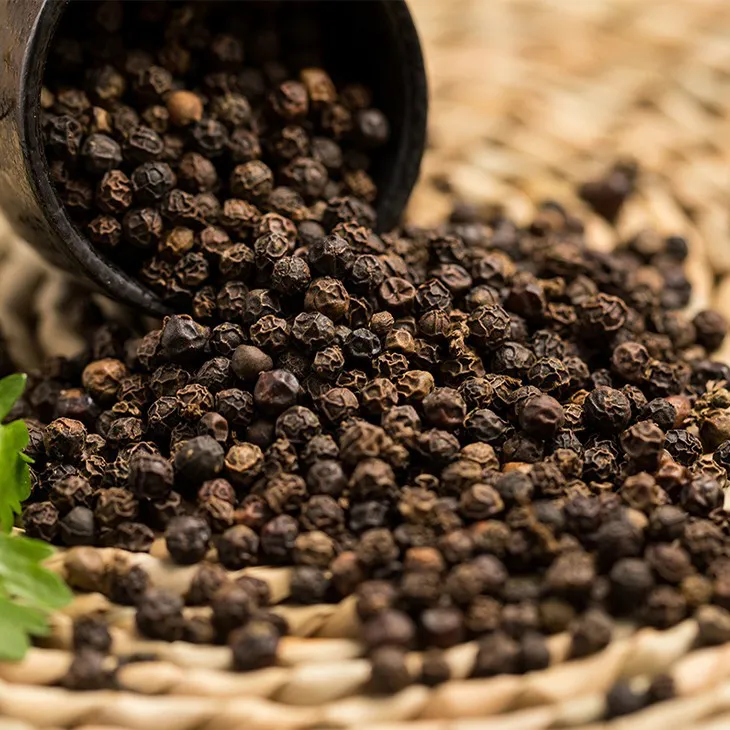- 0086-571-85302990
- sales@greenskybio.com
Understanding Private - Label for Black Pepper Extract: A Comprehensive Guide
2024-12-16

1. Introduction to Black Pepper Extract
Black pepper, known scientifically as Piper nigrum, has been a staple in the culinary world for centuries. However, in recent years, Black Pepper Extract has gained significant attention in various industries, especially in the health and wellness sector. Black Pepper Extract is derived from the black pepper berries through a process that involves extraction of its active components. The main bioactive compound in black pepper extract is piperine, which is responsible for many of its properties.
The extraction process typically involves using solvents to isolate the desired compounds from the pepper berries. This results in a concentrated form of the extract that can be used in different applications. Black pepper extract has a characteristic spicy and pungent flavor, which is also carried over to its extract form, although it can be modified depending on the extraction and processing methods used.

2. Chemical Composition of Black Pepper Extract
As mentioned earlier, the most important component of black pepper extract is piperine. Piperine is an alkaloid that has been studied for its various biological activities. It has antioxidant properties, which means it can help in protecting the body's cells from damage caused by free radicals. Additionally, piperine has been shown to enhance the bioavailability of certain nutrients.
Besides piperine, black pepper extract also contains other minor components such as volatile oils. These volatile oils contribute to the characteristic aroma of black pepper. They are also believed to have some antimicrobial and anti - inflammatory properties. Other components may include resins, fats, and proteins, although in relatively small amounts compared to piperine and the volatile oils.

3. Market Trends of Black Pepper Extract Private - Labeled Products
3.1. Growth in the Health and Wellness Sector
In the health and wellness market, there has been a significant growth in the demand for black pepper extract private - label products. Consumers are increasingly looking for natural ingredients to support their health. Black pepper extract, with its potential health benefits, is being incorporated into various products such as dietary supplements, weight management products, and digestive aids.
For example, in the dietary supplement market, black pepper extract is often combined with other herbs and nutrients to create formulations that claim to boost metabolism or improve digestion. The private - label aspect allows companies to brand these products as their own, targeting specific consumer segments with unique marketing strategies.
3.2. Culinary Applications
Black pepper extract also has a growing presence in the culinary market. In the form of private - label products, it can be used to enhance the flavor of various food products. Chefs and food manufacturers are using black pepper extract in products such as sauces, marinades, and seasonings. The advantage of using the extract is that it provides a more concentrated and consistent flavor compared to using whole black pepper.
Moreover, with the increasing popularity of gourmet and ethnic foods, black pepper extract private - label products are finding new markets. For instance, in the production of high - end spice blends for international cuisines, black pepper extract can play a crucial role in achieving the desired flavor profile.
3.3. Cosmetic and Skincare Applications
The use of black pepper extract in the cosmetic and skincare industry is also on the rise. Some private - label cosmetic products are using black pepper extract for its potential antioxidant and anti - inflammatory properties. It is being incorporated into products such as creams, lotions, and serums.
Black pepper extract may also have a role in promoting blood circulation, which could be beneficial for skin health. However, it is important to note that in cosmetic applications, strict quality control and safety regulations need to be followed to ensure that the products are safe for use on the skin.

4. Quality Control in Black Pepper Extract Private - Label Production
Quality control is of utmost importance in the production of black pepper extract private - label products. Raw material selection is the first step in ensuring quality. The black pepper berries used for extraction should be of high quality, free from contaminants such as pesticides, heavy metals, and mold.
During the extraction process, parameters such as temperature, pressure, and solvent type need to be carefully controlled. These factors can affect the composition and quality of the final extract. For example, if the extraction temperature is too high, it may lead to the degradation of some of the active compounds.
Testing and analysis are also essential parts of quality control. The final extract should be tested for the content of piperine and other key components. Additionally, microbiological testing should be carried out to ensure that the product is free from harmful bacteria, yeast, and mold. Packaging materials should also be carefully selected to protect the extract from degradation and contamination during storage and transportation.

5. Regulatory Requirements for Black Pepper Extract Private - Label Products
Black pepper extract private - label products are subject to various regulatory requirements depending on the country or region of sale. In the food industry, for example, regulations govern the use of food additives, including black pepper extract. The extract must be approved for use in food products and must meet certain purity and safety standards.
In the dietary supplement sector, there are often more stringent regulations. In the United States, for instance, dietary supplements are regulated by the FDA under the Dietary Supplement Health and Education Act (DSHEA). Manufacturers of black pepper extract - based dietary supplements need to ensure that their products are properly labeled, with accurate information about the ingredients, dosage, and potential health benefits or risks.
For cosmetic products containing black pepper extract, regulatory bodies such as the European Commission in Europe and the FDA in the United States have specific regulations regarding ingredient safety, product labeling, and manufacturing processes. These regulations are in place to protect consumer safety and ensure that the products on the market are of high quality.
6. Marketing Strategies for Black Pepper Extract Private - Label Products
6.1. Targeting Health - Conscious Consumers
One effective marketing strategy for black pepper extract private - label products is to target health - conscious consumers. These consumers are often interested in natural products that can support their well - being. Highlighting the health benefits of black pepper extract, such as its antioxidant and nutrient - enhancing properties, can be a key selling point.
Companies can use marketing channels such as health and wellness blogs, social media platforms, and fitness events to reach this target audience. For example, partnering with fitness influencers to promote black pepper extract - based weight management products can increase brand awareness and product sales.
6.2. Emphasizing Culinary Excellence
For black pepper extract private - label products in the culinary market, emphasizing culinary excellence can be a successful marketing strategy. Promoting the product as a way to enhance the flavor of gourmet dishes or traditional recipes can attract food enthusiasts and professional chefs.
Companies can participate in food shows, sponsor cooking competitions, or collaborate with renowned chefs to showcase the versatility of their black pepper extract products. This can also lead to product endorsements and positive word - of - mouth marketing.
6.3. Differentiating in the Cosmetic Market
In the cosmetic market, companies need to differentiate their black pepper extract - based products from competitors. This can be achieved by focusing on unique product features, such as the use of high - quality, sustainably sourced black pepper extract or by highlighting specific skin benefits, like improved skin texture or reduced inflammation.
Using eye - catching packaging and effective product descriptions can also help in attracting consumers. Additionally, offering product samples and conducting in - store demonstrations can increase consumer interest and trial of the products.
7. Conclusion
Black pepper extract private - label products offer a wide range of opportunities in various industries. Understanding the chemical composition, market trends, quality control, regulatory requirements, and marketing strategies related to these products is crucial for businesses looking to enter or expand in this market. With the growing demand for natural and functional ingredients, black pepper extract is likely to continue to play an important role in the private - label product landscape.
FAQ:
What is the main chemical composition in black pepper extract?
Black pepper extract mainly contains piperine, which is responsible for its pungent taste. It also contains other minor components such as volatile oils, resins, and alkaloids.
What are the current market trends for private - labeled black pepper extract products?
The market trends for private - labeled black pepper extract products include increasing demand for natural and organic products. There is also a growing interest in products with high - quality control standards. Additionally, the use of black pepper extract in the health and wellness industry, such as in dietary supplements, is on the rise.
How important is quality control in black pepper extract private labels?
Quality control is extremely important in black pepper extract private labels. It ensures the consistency of the product in terms of its chemical composition, purity, and potency. Quality control also helps to meet regulatory requirements and maintain customer satisfaction.
What are the regulatory requirements for black pepper extract private labels?
Regulatory requirements for black pepper extract private labels vary by region. Generally, they need to comply with food safety and labeling regulations. This may include providing accurate ingredient lists, allergen information, and proper storage instructions. In some cases, products may also need to meet certain purity and quality standards.
What are some effective marketing strategies for black pepper extract private labels?
Some effective marketing strategies for black pepper extract private labels include highlighting the natural and health - promoting properties of the product. Targeting specific market segments such as the health - conscious consumers or the food and beverage industry can also be effective. Additionally, using social media and online platforms to promote the product can increase its visibility.
Related literature
- The Chemistry and Bioactivity of Black Pepper (Piper nigrum L.)"
- "Market Trends in Spice Extracts: Focus on Black Pepper"
- "Quality Control in Herbal Extracts: The Case of Black Pepper"
- "Regulatory Aspects of Botanical Extracts: Black Pepper Extract as an Example"
- "Marketing Strategies for Specialty Food Extracts: Black Pepper Extract"
- ▶ Hesperidin
- ▶ Citrus Bioflavonoids
- ▶ Plant Extract
- ▶ lycopene
- ▶ Diosmin
- ▶ Grape seed extract
- ▶ Sea buckthorn Juice Powder
- ▶ Fruit Juice Powder
- ▶ Hops Extract
- ▶ Artichoke Extract
- ▶ Mushroom extract
- ▶ Astaxanthin
- ▶ Green Tea Extract
- ▶ Curcumin
- ▶ Horse Chestnut Extract
- ▶ Other Product
- ▶ Boswellia Serrata Extract
- ▶ Resveratrol
- ▶ Marigold Extract
- ▶ Grape Leaf Extract
- ▶ New Product
- ▶ Aminolevulinic acid
- ▶ Cranberry Extract
- ▶ Red Yeast Rice
- ▶ Red Wine Extract
-
Dandelion Leaf Extract
2024-12-16
-
Echinacea Extract
2024-12-16
-
Agaricus Blazei Extract
2024-12-16
-
Apricot Powder
2024-12-16
-
Fig Extract
2024-12-16
-
Curcumin Extract
2024-12-16
-
Red Date Extract
2024-12-16
-
Oyster Mushroom Extract Powder
2024-12-16
-
Lemon Juice Powder
2024-12-16
-
Senna Leaf Extract
2024-12-16





















